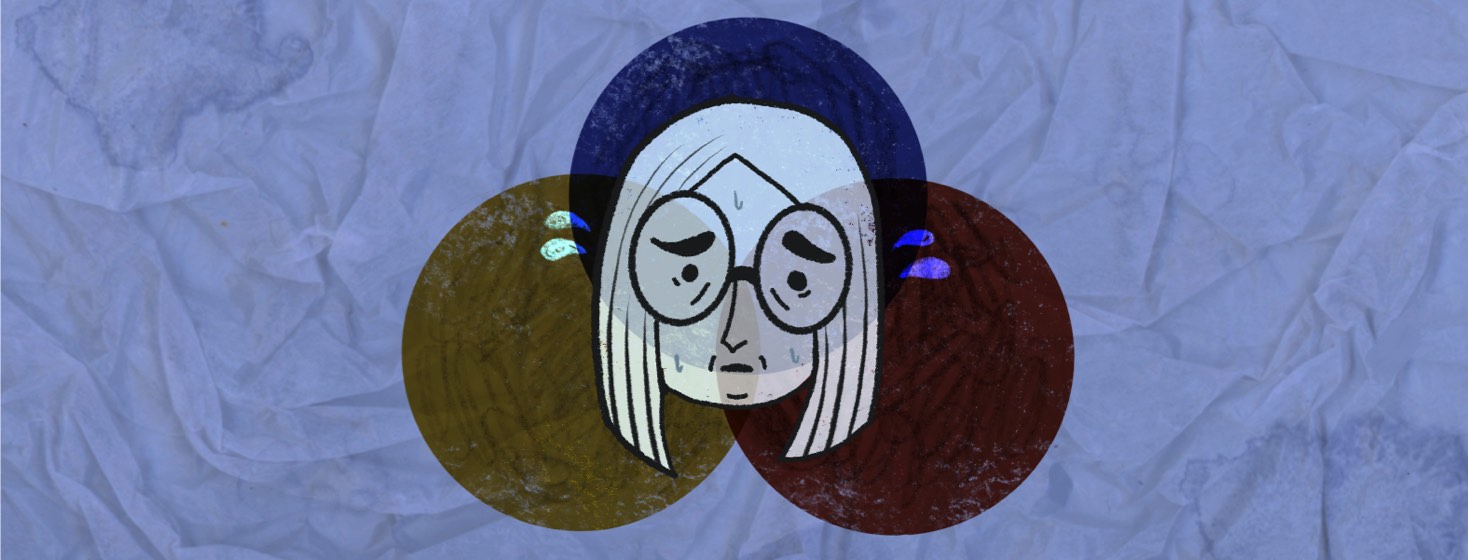How Common Are Mental Health Disorders With Narcolepsy?
Doctors use the term "comorbidity" to describe a condition that occurs at the same time as another condition. Comorbid illnesses can interact in ways that make both worse.
A common comorbidity for people with narcolepsy is having problems with their mental health. For example, many people with narcolepsy also have:1,2
- Depression
- Anxiety
- Attention-deficit/hyperactivity disorder (ADHD)
The symptoms of narcolepsy and mental health issues can be similar. Also, some treatments for mental health problems mask narcolepsy symptoms. This makes it harder to diagnose narcolepsy.1,2
Doctors do not know why these conditions occur together. One may trigger the other. The conditions could also share an origin.1,2
How common are mental health issues among people with narcolepsy?
A study of 9,312 people with and 46,559 people without narcolepsy found that mental illness was more common in people with narcolepsy. The study showed that those with narcolepsy have a:3
- 24.1 percent higher risk for mood disorders (37.9 percent versus 13.8 percent)
- 22.8 percent higher risk for depressive disorders (35.8 percent versus 13 percent)
- 13.2 percent higher risk for anxiety disorders (25.1 percent versus 11.9 percent)
Higher rates of mental illness meant people with narcolepsy were also more likely to take psychiatric drugs. Compared to others, people with narcolepsy took more:3Antidepressants, including:
- Selective serotonin reuptake inhibitors (SSRIs) such as Celexa® (citalopram), Lexapro® (escitalopram), and Prozac® (fluoxetine)
- Serotonin-norepinephrine reuptake inhibitors (SNRIs) such as Effexor® (venlafaxine), Cymbalta® (duloxetine), and Pristiq® (desvenlafaxine)
- Tricyclics such as Tofranil™ (imipramine), Pamelor™ (nortriptyline), and amoxapine (formerly marketed as Asendin)
Anxiolytic (anxiety-reducing) benzodiazepines such as:
- Lorazepam
- Diazepam
- Alprazolam
- Hypnotics (drugs that bring on sleep)
This study also showed that, among people with narcolepsy, younger people have more anxiety and mood disorders than older people.3
Narcolepsy and depression
As many as 57 percent of people with narcolepsy also have depression. That makes depression the most common mental health comorbidity among people with narcolepsy. Some problems that accompany narcolepsy and may also cause depression are:1
- Disrupted sleep
- Fatigue
- Weight gain
- Social isolation
- Low hypocretin (HRT), a brain hormone
Narcolepsy and anxiety
As many as 53 percent of people with narcolepsy also have anxiety disorders. Interestingly, different types of anxiety disorders can appear at different times. For example, panic disorder and simple phobia tend to occur after a narcolepsy diagnosis. Obsessive-compulsive disorder and social phobia, on the other hand, usually appear before narcolepsy is diagnosed.1
Narcolepsy and ADHD
Sleep disruption may be linked to ADHD. Children with narcolepsy are 2 times more likely to have ADHD. ADHD symptoms occur in people with type 1 and type 2 narcolepsy, so it appears to be unlikely that low HRT causes ADHD in people with narcolepsy.1
Narcolepsy and other mental health disorders
Some mental health disorders, like schizophrenia, share symptoms with narcolepsy. Both cause hallucinations, though the type of hallucinations usually differs between the 2 conditions. Comorbid schizophrenia has been reported in people with narcolepsy, but it is not common.1
Do narcolepsy and mental health issues have a common cause?
Narcolepsy and mental health issues are so commonly seen together that doctors think one may trigger the other, or they may be caused by the same problem or problems in the brain.1
Dopamine, serotonin, and norepinephrine are important brain chemicals. Low levels of these chemicals are linked to depression and anxiety. HRT is also important. HRT is a chemical tightly linked to type 1 narcolepsy. Low HRT causes many symptoms of narcolepsy.4-6
These brain chemicals may be connected in such a way that when a problem occurs in the brain, they are all affected. If so, one problem could cause several diseases at once. More research is needed before doctors understand these processes completely.1
Will mental illness change my treatment?
Mental health issues may change how your doctor treats your narcolepsy. For example, if you have depression, you may need to avoid sodium oxybate. If you have a psychotic disorder, you may need to avoid methylphenidate, amphetamines, and oxybates. Your doctor will work with you to find the right treatment.2
If you feel depressed or have anxiety, tell your doctor. Treatments they may suggest to help you manage your mental health symptoms include:
- Lifestyle changes
- Counseling (therapy)
- Medications
If you live with mental health comorbidities in addition to narcolepsy, you are not alone. View our mental health resources for more information on symptoms, treatment, and more.

Join the conversation